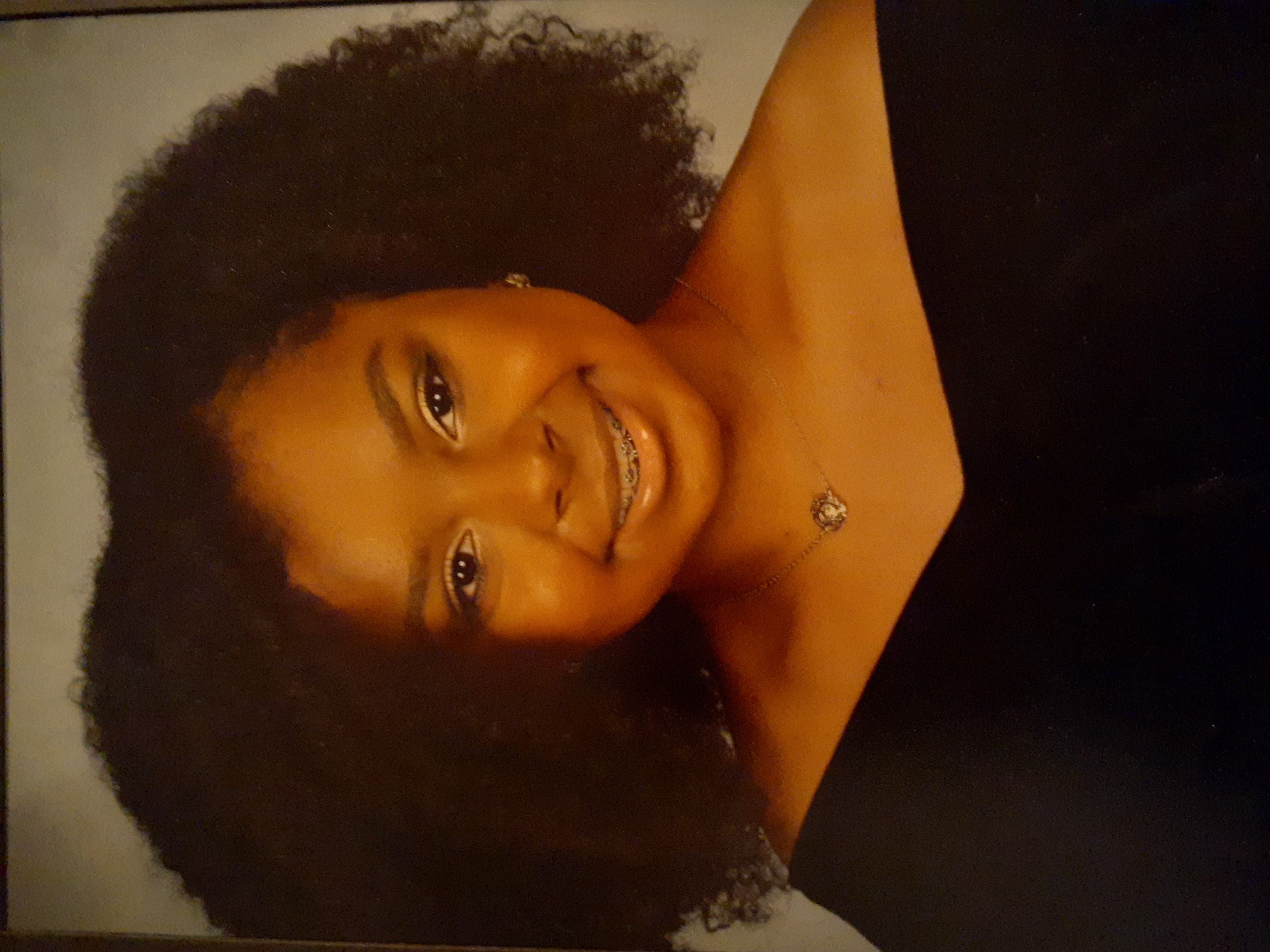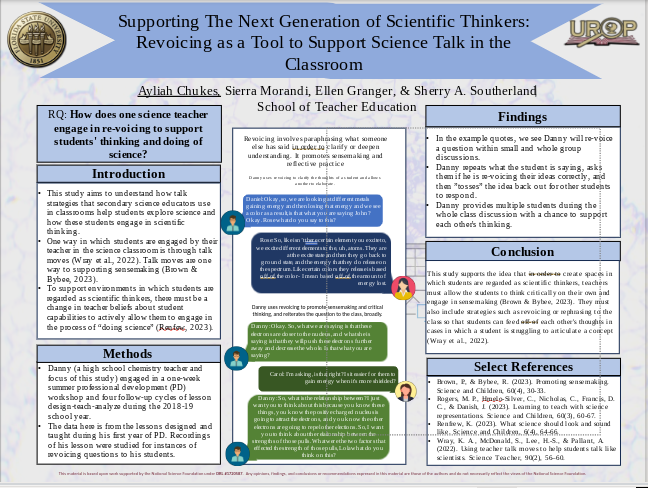Research Symposium
24th annual Undergraduate Research Symposium, April 3, 2024
Ayliah Chukes Poster Session 5: 4:00 pm - 5:00 pm/377

BIO
Ayliah is a dedicated second-year student pursuing a Bachelor's degree in Behavioral Neuroscience with a keen interest in exploring the dynamic topics of neuroplasticity, motor control, and cognitive neuroscience. As a Tallahassee native, she brings a strong academic foundation cultivated at Godby High School, where she distinguished herself as valedictorian. Motivated by a fascination with the brain's remarkable ability to adapt and reorganize in response to experience, she is passionate about investigating the neural mechanisms underlying learning, movement coordination, and cognitive function. Through rigorous study and research, Ayliah aspires to contribute to our understanding of these fundamental processes and their implications for human health and behavior.
Supporting The Next Generation of Scientific Thinkers: Revoicing as a tool to Support Science Talk in the Classroom
Authors: Ayliah Chukes, Sierra MorandiStudent Major: Behavioral Neuroscience
Mentor: Sierra Morandi
Mentor's Department: School of Teacher Education Mentor's College: College of Education, Health and Human Sciences Co-Presenters:
Abstract
To understand how professional development (PD) can support teachers in the pursuit of creating quality science education for students, this study aims to understand how the actions and strategies educators employ in classrooms assist students in exploring the world of science and how students engage with said strategies. In recent years, research has emphasized supporting environments where students are regarded as scientific thinkers. To accomplish this, there must be a change in the instructional beliefs and attitudes attributed to the capabilities of children to actively allow them to engage in the process of “doing science.” “Doing science” refers to studying the natural world through scientific practices, such as observation, investigation, and analysis, and is facilitated by “talking science.” Over a year-long professional development, we focus on one secondary science teacher’s shifts in supporting classroom discourse as students are positioned to engage in “doing science.” Using qualitative methodology, we explored classroom video and audio recordings to make sense of the idea of “revoicing” and how it was engaged in to support talk in the classroom. The findings of this study highlight the importance of targeted PD programs in developing a teacher's ability to facilitate learning among students by allowing students to actively “do and talk science.”
Keywords: Science talk, Science Education, Professional development, Teacher education


